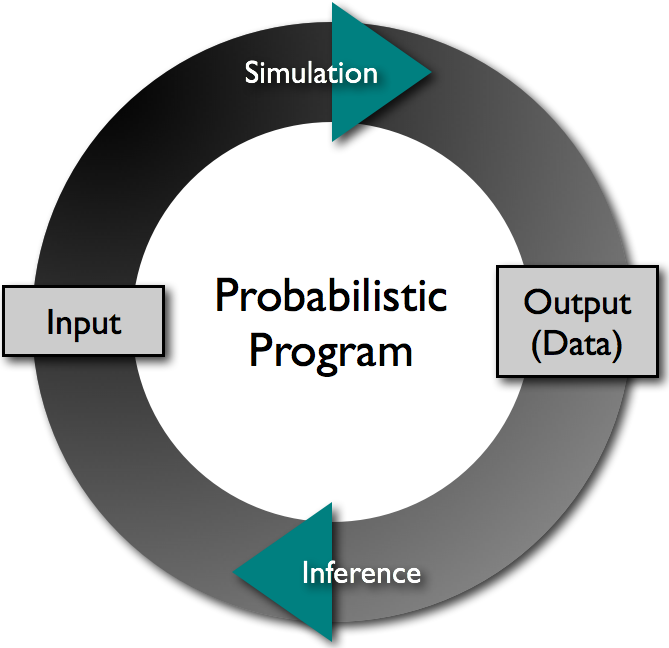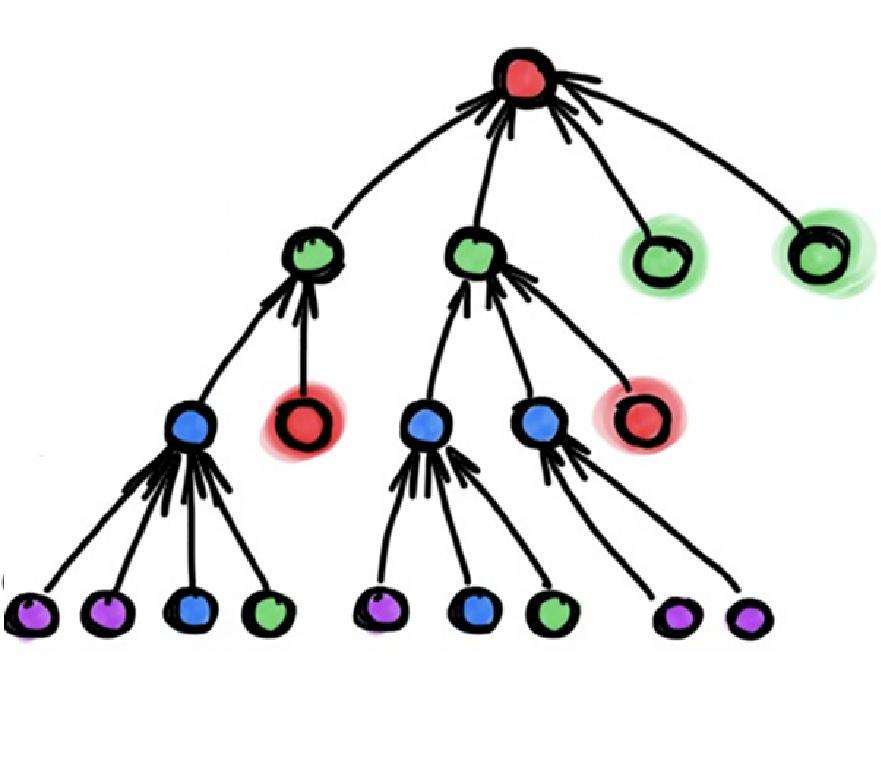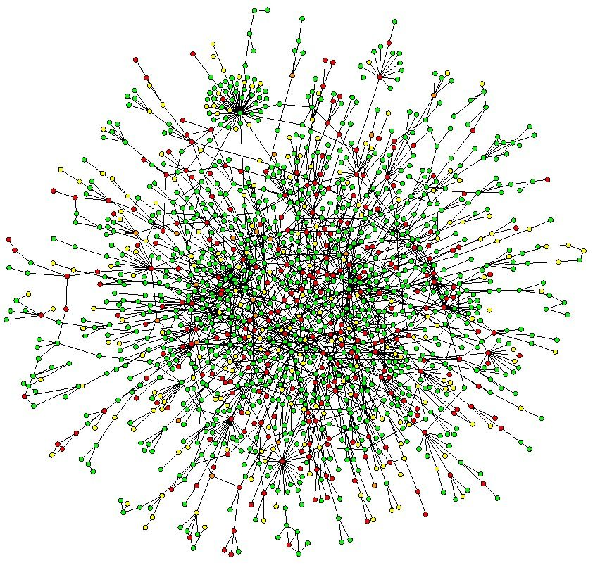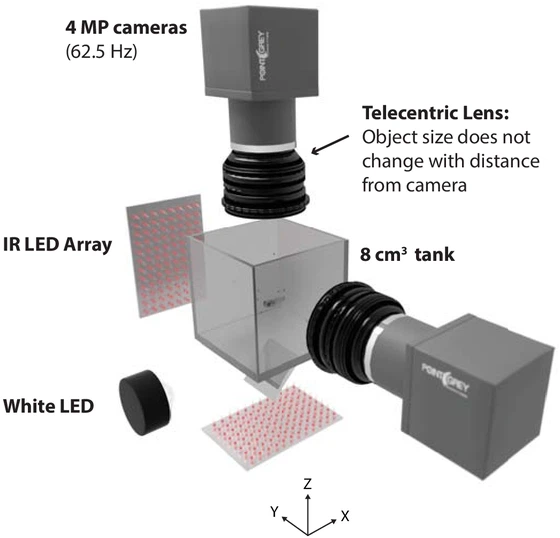Feras Saad فِرَاسْ سَعَد
I am an Assistant Professor in the Computer Science Department at Carnegie Mellon University, affiliated with the Principles of Programming and Artificial Intelligence groups.
My research group develops programming techniques for probabilistic modeling and inference that are flexible, scalable, and sound―backed by formal guarantees on correctness and statistical validity. We explore these ideas through a blend of theoretical and applied research in probabilistic programming languages, statistics and data science, artificial intelligence, and the mathematical foundations of probabilistic computation.
Our projects are associated with open-source software libraries that help practitioners use these techniques in their own applications. See research and software for an overview.
Background
I received the PhD in Computer Science, and MEng/SB degrees in Electrical Engineering and Computer Science, from MIT. My theses on probabilistic programming were recognized with the Sprowls PhD Thesis Award in AI+Decision Making and Johnson MEng Thesis Award in Computer Science. Prior to joining CMU, I was a Visiting Research Scientist at Google.
Contact
|
|
Research
Our work combines ideas from probability and programming languages to build scalable systems for sound probabilistic modeling and inference. Current research themes include:

OOPSLA-24 PLDI-24 PLDI-21 POPL-19 PLDI-19 AISTATS-17 NIPS-16



OOPSLA-25 PLDI-24 AISTATS-22 AISTATS-19

Probabilistic Computing Systems Lab


Graduate Student, 2024–
Carnegie Mellon University
Interests: scientific computing, probabilistic programming

Graduate Student, 2024–
Carnegie Mellon University
Interests: probabilistic algorithms, information and computation
Alumni

Postdoctoral Associate, 2023–2024
→ Assistant Professor, POSTECH
PhD, Stanford University, 2023
Interests: continuous computation, program correctness

Visiting Graduate Student, 2024
Massachusetts Institute of Technology
Interests: differentiable programming, physical simulation
Publications
Efficient Rejection Sampling in the Entropy-Optimal Range
Draper andSaad
arXiv:2504.04267 [cs.DS], 2025
To Appear: IEEE Transactions on Information Theory
link paper code BibTeXEfficient Online Random Sampling via Randomness Recycling
Draper andSaad
SODA, Proc. Annual ACM-SIAM Symposium on Discrete Algorithms, 2026
link paper code BibTeXRandom Variate Generation with Formal Guarantees
Saad and Lee
PLDI, Proc. ACM Program. Lang. 9, 2025
paper link code artifact slides BibTeXFloating-Point Neural Networks Are Provably Robust Universal Approximators
Hwang, Lee, Park, Park,Saad
CAV, Proc. 37th International Conf. on Computer Aided Verification, 2025
paper link code BibTeXIntegrating Resource Analyses via Resource Decomposition
Pham, Niu, Glover,Saad , Hoffman
OOPSLA, Proc. ACM Program. Lang. 9, 2025
paper link artifact BibTeXScalable Spatiotemporal Prediction with Bayesian Neural Fields
Saad , Burnim, Carroll, Patton, Köster, Saurous, Hoffman
Nature Communications 15(7942), 2024
Editor's Highlight
link paper code BibTeXProgrammable MCMC with Soundly Composed Guide Programs
Pham, Wang,Saad , Hoffmann
OOPSLA, Proc. ACM Program. Lang. 8(OOPSLA2), 2024
paper link artifact BibTeXRobust Resource Bounds with Static Analysis and Bayesian Inference
Pham,Saad , Hoffmann
PLDI, Proc. ACM Program. Lang. 8, 2024
paper artifact link BibTeXGenSQL: A Probabilistic Programming System for Querying Generative
Models of Database Tables
Huot, Ghavami, Lew, Schaechtle, Freer, Shelby, Rinard,Saad , Mansinghka
PLDI, Proc. ACM Program. Lang. 8, 2024
paper artifact link code BibTeXLearning Generative Population Models From Multiple Clinical Datasets
via Probabilistic Programming
Loula, Collins, Schaechtle, Tenenbaum, Weller,Saad , O'Donnell, Mansinghka
AccMLBio, ICML Workshop on Efficient and Accessible Foundation Models for Biological Discovery, 2024
paper link BibTeXSequential Monte Carlo Learning for Time Series Structure Discovery
Saad , Patton, Hoffman, Saurous, Mansinghka
ICML, Proc. 40th International Conf. on Machine Learning, 2023
paper link code BibTeXScalable Structure Learning, Inference, and Analysis with Probabilistic Programs
Saad
PhD Thesis, Massachusetts Institute of Technology, 2022
MIT George M. Sprowls PhD Thesis Award
Estimators of Entropy and Information via Inference in Probabilistic Models
Saad , Cusumano-Towner, Mansinghka
AISTATS, Proc. 25th International Conf. on Artificial Intelligence and Statistics, 2022
paper link arXiv code BibTeXBayesian AutoML for Databases via the InferenceQL Probabilistic Programming System
Schaechtle, Freer, Shelby,Saad , Mansinghka
AutoML, 1st International Conf. on Automated Machine Learning (Workshop), 2022
paper link BibTeXSPPL: Probabilistic Programming with Fast Exact Symbolic Inference
Saad , Rinard, Mansinghka
PLDI, Proc. 42nd International Conf. on Programming Design and Implementation, 2021
paper artifact link arXiv code BibTeXHierarchical Infinite Relational Model
Saad , Mansinghka
UAI, Proc. 37th Conf. on Uncertainty in Artificial Intelligence, 2021
Oral Presentation
paper link arXiv code BibTeXThe Fast Loaded Dice Roller: A Near Optimal Exact Sampler for Discrete Probability Distributions
Saad , Freer, Rinard, Mansinghka
AISTATS, Proc. 24th International Conf. on Artificial Intelligence and Statistics, 2020
paper supplement link arXiv code BibTeXOptimal Approximate Sampling from Discrete Probability Distributions
Saad , Freer, Rinard, Mansinghka
POPL, Proc. ACM Program. Lang. 4, 2020
paper supplement artifact link code arXiv BibTeXA Family of Exact Goodness-of-Fit Tests for High-dimensional Discrete Distributions
Saad , Freer, Ackerman, Mansinghka
AISTATS, Proc. 23rd International Conf. on Artificial Intelligence and Statistics, 2019
paper supplement link arXiv BibTeXBayesian Synthesis of Probabilistic Programs for Automatic Data Modeling
Saad , Cusumano-Towner, Schaechtle, Rinard, Mansinghka
POPL, Proc. ACM Program. Lang. 3, 2019
paper supplement link arXiv BibTeXGen: A General Purpose Probabilistic Programming System with Programmable Inference
Cusumano-Towner,Saad , Lew, Mansinghka
PLDI, Proc. 40th International Conf. on Programming Design and Implementation, 2019
paper link code BibTeXElements of a Stochastic 3D Prediction Engine in Larval Zebrafish Prey Capture
Bolton, Haesemeyer, Jordi, Schaechtle,Saad , Mansinghka, Tenenbaum, Engert
eLife 8:e51975, 2019
paper BibTeXTemporally-Reweighted Chinese Restaurant Process Mixtures
for Clustering, Imputing, and Forecasting Multivariate Time Series
Saad , Mansinghka
AISTATS, Proc. 21st International Conf. on Artificial Intelligence and Statistics, 2018
paper supplement link code BibTeXGoodness-of-Fit Tests for High-dimensional Discrete Distributions
with Application to Convergence Diagnostics in Approximate Bayesian Inference
Saad , Freer, Ackerman, Mansinghka
AABI, 1st Symposium on Advances in Approximate Bayesian Inference, 2018
paper link BibTeXDetecting Dependencies in Sparse, Multivariate Databases
Using Probabilistic Programming and Non-parametric Bayes
Saad , Mansinghka
AISTATS, Proc. 20th International Conf. on Artificial Intelligence and Statistics, 2017
paper supplement link arXiv code BibTeXProbabilistic Search for Structured Data via Probabilistic Programming
and Nonparametric Bayes
Saad , Casarsa, Mansinghka
PROBPROG, 1st International Conf. for Probabilistic Programming, 2018
arXiv code BibTeXTime Series Structure Discovery via Probabilistic Program Synthesis
Schaechtle*, Saad*, Radul, Mansinghka
PROBPROG, 1st International Conf. for Probabilistic Programming, 2018
arXiv BibTeXA Probabilistic Programming Approach to Probabilistic Data Analysis
Saad , Mansinghka
NIPS, Proc. 30th Conf. on Neural Information Processing Systems, 2016
paper link code BibTeXProbabilistic Data Analysis with Probabilistic Programming
Saad , Mansinghka
arXiv, Technical Report arXiv:1608.05347, 2016
Extended version of NIPS 2016.
arXiv BibTeXProbabilistic Data Analysis with Probabilistic Programming
Saad
MEng Thesis, Massachusetts Institute of Technology, 2016
MIT Charles & Jennifer Johnson MEng Thesis Award, 1st Place
Google Scholar dblp ORCID arXiv BibTeX
Teaching
| Carnegie Mellon University | ||
|---|---|---|
| 2026 Spring | 15-819 | Probabilistic Programming Languages |
| 2025 Fall | 15-259/559 | Probability and Computing |
| 2025 Spring | 15-251 | Great Ideas in Theoretical Computer Science |
| 2024 Fall | 15-259/559 | Probability and Computing |
| 2024 Spring | 15-251 | Great Ideas in Theoretical Computer Science |
| Massachusetts Institute of Technology | ||
| 2015 Fall | 9.S915 | Introduction to Probabilistic Programming |
Software
GitHub: https://github.com/probsys
SPPL: Probabilistic programming language with fast exact symbolic inference
https://github.com/probsys/spplGen.jl: General-purpose probabilistic programming with programmable inference
https://gen.devGenSQL: Probabilistic query language for generative models of database tables
https://github.com/OpenGen/GenSQL.queryBayesDB: Probabilistic programming for data analysis on sqlite
https://github.com/probcomp/bayesliteCGPM: Library of composable probabilistic generative models
https://github.com/probcomp/cgpm
BayesNF: Bayesian neural fields for spatiotemporal data modeling
https://github.com/google/bayesnfAutoGP.jl: Automated Bayesian model discovery for time series data
https://github.com/probsys/AutoGP.jlHIRM: Bayesian nonparametric structure learning for relational systems
https://github.com/probsys/hierarchical-irmTRCRPM: Bayesian method for clustering, imputing, and forecasting
https://github.com/probcomp/trcrpmlibrvg: C library for synthesizing random variate generators with formal guarantees
https://github.com/probsys/librvgRR: C library for recycling random bits in prominent sampling algorithms
https://github.com/probsys/randomness-recyclingALDR: Faster exact sampler for discrete probability distributions
https://github.com/probsys/amplified-loaded-dice-rollerFLDR: Fast exact sampler for discrete probability distributions
https://github.com/probsys/fast-loaded-dice-roller
See also: code generator by Peter Occil.OPTAS: Optimal limited-precision sampler for discrete distributions
https://github.com/probsys/optimal-approximate-sampling
Probabilistic Programming Systems
Statistical Modeling
Random Variate Generation
Sublime Text Users: Productivity plugins (9000+ users):
AddRemoveFolder;
RemoveLineBreaks;
ViewSetting.
Talks
Random Variate Generation with Formal Guarantees
PLDI 2025, Seoul, Republic of Korea
Keynote: Scalable Spatiotemporal Prediction with Bayesian Neural Fields
UAI 2024 Workshop on Tractable Probabilistic Modeling, Barcelona, Spain
Automated Gaussian Processes and Sequential Monte Carlo
Learning Bayesian Statistics Podcast, Episode #104, 2024
Keynote: Domain-Specific Probabilistic Programs for Time Series Modeling
Google Forecasting Summit 2023, Mountain View, CA
Programmable Systems for Probabilistic Modeling and Inference
SCS Faculty Lightning Talks 2023
Scalable Structure Learning and Inference via Probabilistic Programming
MIT Thesis Defense, 2022, Virtual
MIT Thesis Defense, 2022, Cambridge, MA
Scalable Structure Learning and Inference for Domain-Specific Probabilistic Programs
LAFI 2022, Philadelphia, PA
SPPL: Probabilistic Programming with Fast Exact Symbolic Inference
PROBPROG 2021, Virtual
SPLASH 2021, Chicago, IL
MIT PLSE Seminars 2021, Virtual
PLDI 2021 [Extended] [Lightning], VirtualFairer and Faster AI Using Probabilistic Programming Languages
MIT Horizon 2021, VirtualHierarchical Infinite Relational Model
UAI 2021 (Oral Presentation), VirtualFast Loaded Dice Roller
AISTATS 2020, VirtualOptimal Approximate Sampling from Discrete Probability Distributions
POPL 2020, New Orleans, LABayesian Synthesis of Probabilistic Programs for Automatic Data Modeling
CICS Seminars 2019, Notre Dame, IN
POPL 2019, Cascais, Portugal
PROBPROG 2018, Boston, MA
Press
MIT researchers introduce generative AI for databases. MIT News, Jul. 2024
Estimating the informativeness of data. MIT News, Apr. 2022
Exact symbolic AI for faster, better assessment of AI fairness. MIT News, Aug. 2021
How and why computers roll loaded dice. Quanta Magazine, Jul. 2020
How Rolling Loaded Dice Will Change the Future of AI. Intel Press Release, Jul. 2020
Algorithm quickly simulates a roll of loaded dice. MIT News, Jan. 2020
MIT Debuts Gen, a Julia-Based Language for Artificial Intelligence. InfoQ, Jul. 2019
New AI programming language goes beyond deep learning. MIT News, Jun. 2019
Democratizing data science. MIT News, Jan. 2019
MIT lets AI ``synthesize'' computer programs to aid data scientists. ZDNet, Jan. 2019
